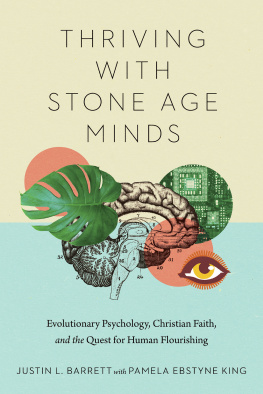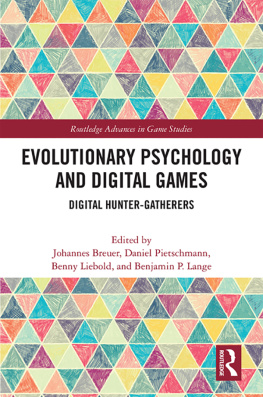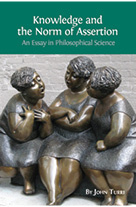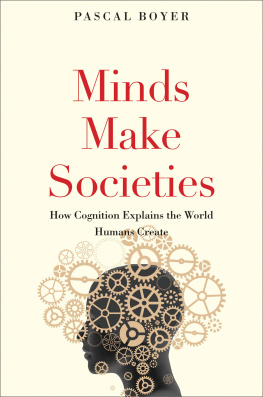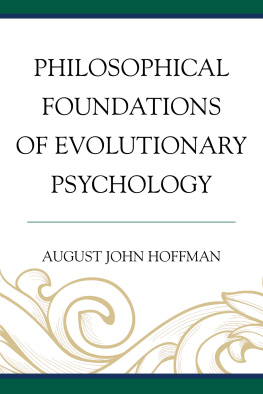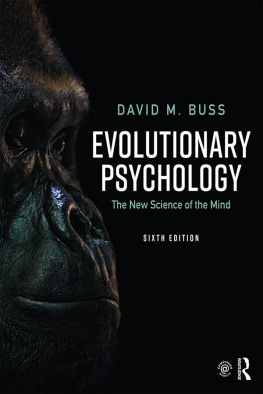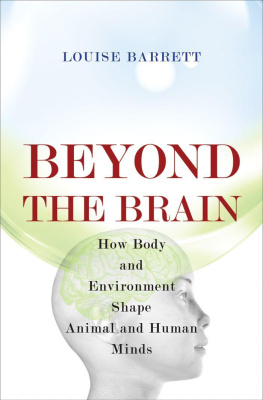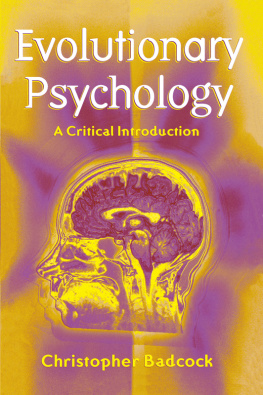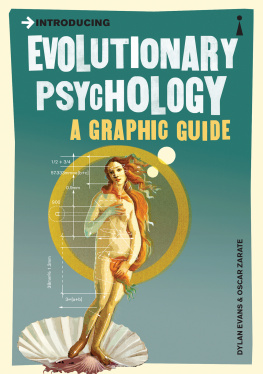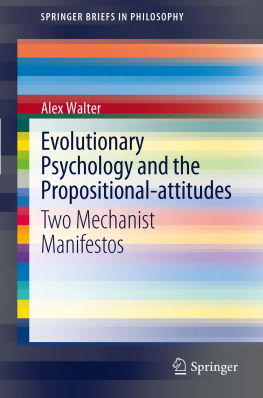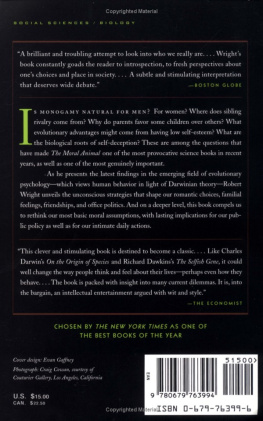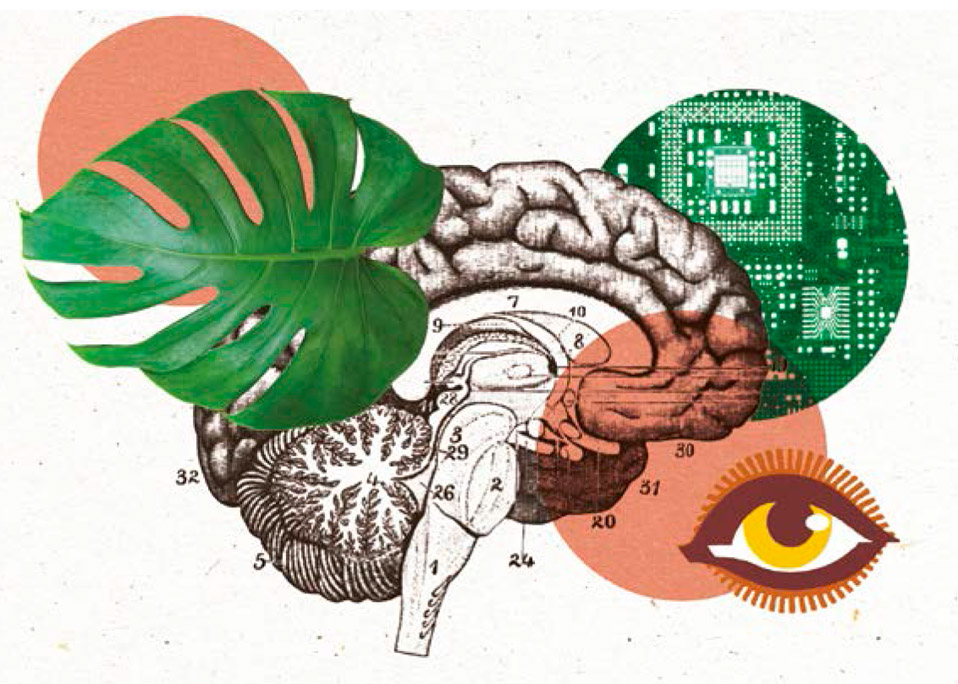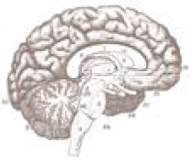Sommaire
Pagination de l'dition papier
Guide
THRIVING
WITH
STONE AGE
MINDS
Evolutionary Psychology, Christian Faith,
and the Quest for Human Flourishing
JUSTIN L. BARRETT with PAMELA EBSTYNE KING
InterVarsity Press
P.O. Box 1400, Downers Grove, IL 60515-1426
ivpress.com
2021 by Justin L. Barrett and Pamela Ebstyne King
All rights reserved. No part of this book may be reproduced in any form without written
permission from InterVarsity Press.
InterVarsity Press is the book-publishing division of InterVarsity Christian Fellowship/USA, a movement of students and faculty active on campus at hundreds of universities, colleges, and schools of nursing in the United States of America, and a member movement of the International Fellowship of Evangelical Students. For information about local and regional activities, visit intervarsity.org.
The Scripture quotations quoted herein are from the Revised Standard Version of the Bible, copyright 1946, 1952, 1971 by the Division of Christian Education of the National Council of the Churches of Christ in the U.S.A. Used by permission. All rights reserved.
While any stories in this book are true, some names and identifying information may have been changed to protect the privacy of individuals.
The publisher cannot verify the accuracy or functionality of website URLs used in this book beyond the date of publication.
Cover design and image composite: David Fassett
Images: computer motherboard: Peter Dazeley / The Image Bank / Getty Images
paper background: Peter Dazeley / The Image Bank / Getty Images
brain illustration: dani3315 / iStock / Getty Images Plus
large green leaves: sarayut Thaneerat / Moment Collection / Getty Images
eye illustration: CSA Images / Getty Images
ISBN 978-0-8308-8849-8 (digital)
ISBN 978-0-8308-5293-2 (print)
This digital document has been produced by Nord Compo.
For Jeffrey Schloss,
Someone from whom I have learned a lot concerning how to think
about evolution Christianly and also the person who should have
written this book but could not be persuaded to do so.
JLB
For Aidan, Rhys, Jocelyn, Max, Anika,
Jones, Callie, Hannah, Elyse, Jessica, and Nik
The next generation of my family who give me great hope in the human
speciess ability to thrive through the complexity of life and who
actively and uniquely contribute to the flourishing of our earthly niche.
PEK

INTRODUCTION
SOMETHING ISNT RIGHT. Sure, globally, life expectancy is rising and infant mortality is falling. Violenceincluding warfareis lower in the twenty-first century than the twentieth century. Education is up and starvation is down. By some estimates, less than 10 percent of the worlds population now lives in extreme poverty, while over 70 percent did in 1900. There is a lot to be grateful for, and yet...
In many nations with high levels of economic development, including the United States, people are taking longer to gain financial independence and start their own families. Depression, suicide, and drug addiction continue to ravage lives, particularly the lives of young people. New addictions and addiction-like dependenciesto social media, video gaming, gambling, and pornographykeep popping up. Anxiety disorders may be more common than ever before. Adequate food, security, and other basic resources for living are available to an increasingly large share of humanity, but we dont seem to be flourishing. Something isnt right.
This book is concerned with integrating the best of the human sciences with the best of theological insights around the topic of human flourishing or thriving. Specifically, I suggest that evolutionary psychology and neighboring scientific disciplines can serve as useful tools in analyzing the challenges to human thriving and possible solutions. These tools cannot create full-bodied solutions on their own, but joined with philosophical and theological wisdom, they may be tremendously valuable. Because of this value, this book serves as an introduction to evolutionary psychology contextualized around a particular problem: what does it mean to thrive, and why does it often seem so difficult?
GIVING EVOLUTIONARY PSYCHOLOGY A CHANCE, GIVING CHRISTIAN THEOLOGY A CHANCE
I am not here to take sides. I am not on the side of evolution or the side of biblical Christianity, or even on the side of the idea of sides. My aim is to pursue understanding and truth. That aim, however, starts with some suppositions. I am convinced that the sciences, at their best, are powerful tools for revealing some truths, but not all. The relevant scientific work currently converges on the idea that we humans have come to be the creatures we are in part through a process of evolution from other species. I am also convinced that the Bible, properly interpreted, reveals critical truths about human nature and purpose and what it means to live a life worth living. The Bible reveals that humans are creatures; that is, they are created beings and created in Gods image. The sciences derive much of their explanatory power from the fact (as I see it) that God created an orderly world and made at least some organisms, human beings, capable of partially and imperfectly glimpsing that order. Importantly, the Bible also reveals that, though some truths can be apprehended intellectually, ultimate truth was embodied by a person: Jesus of Nazareth, wholly human and wholly divine. What it means to perfectly image God and live an abundant, thriving life was captured in the life of Jesus. These are some of my starting points, but you need not share them to profit from this book.
I am also convinced that when it comes to science, biblical interpretation, and theological reflection, we are bound to get some things wrong. History shows us repeatedly how scientific theories have had to be amended or even discarded. The scientific consensus of one generation passes away, but not usually in its entirety. In psychological science, it was not long ago that many prominent scientists regarded nearly all human behaviors as the product of fairly simple learning mechanisms. As I will explain, psychological science has moved on from this position. We havent rejected the importance of basic learning mechanisms, but we have added to and refined the story. Scientific inquiry has shown progress. Less dramatically, biblical interpretation and theological reflections on Scripture have also shown progress. For instance, the idea that God is a unity of three persons, Father, Son, and Holy Spirit, is not clearly and unambiguously articulated in the Bible but took centuries of theological development after the Bible was written. We even see some change of thinking concerning Gods revelation within the Bible itself. Jesus earliest followers, the apostles, initially assumed that any followers of Jesus, even non-Jews, had to adopt Jewish dietary restrictions. We read in the book of Acts how the apostle Peter changes his mind on this matter (see Acts 10). Theological progress happens. For these reasons, I have written this book with the assumption that I have gotten some things wrong and I will eventually change my mind.

